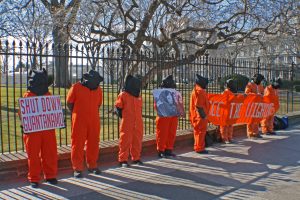It is difficult to remember a time when podcasts did not rule the internet.
Podcasting really took hold during the pandemic, for obvious reasons, and now it seems like there is a podcast for anything, all the time, all over the world. Yet when the podcast Serial first exploded onto the airwaves in 2014, it was one of the first of its kind to dive into a true crime case and try to solve it in real time.
The first season of Serial delved into the case of high schoolers Adnan Syed and Hae Min Lee, and took listeners back to Baltimore in 1999, when Lee suddenly vanished and was later found dead. Six weeks later, her former boyfriend Syed was arrested and charged with her murder, before being sent to prison for life.
Serial was an immediate hit, and the podcast and its subsequent seasons has been downloaded over 300 million times. Season One was also the first podcast to win a Peabody award, cementing podcasting as a serious form of journalism thanks to producer and reporter Sarah Koenig’s thoughtful depiction of the case and interviews with Syed and others.
In addition to its commercial success, Serial prompted a flurry of new interest in the case and, in a stunning turn of events, Syed was sensationally freed from prison last year, although the final outcome of his case is still pending.
Now Serial is back with Season Four, and the history of Guantanamo Bay Detention Camp in Cuba “told by people who lived through key moments in Guantanamo’s evolution, who know things the rest of us don’t about what it’s like to be caught inside an improvised justice system.”
It is a worthy topic.
Guantanamo Bay Detention Camp was first hastily opened in January 2002 following the deadly attacks on the United States on September 11, 2001, and remains open to this day. While almost 800 men were once held there, now only around 30 remain, with around 750 transferred out of the prison over the years.
As promised, the new Serial podcast takes listeners through interviews with a cast of Guantanamo characters, including former prison warden Michael Bumgarner and former detainee Majid Khan, who was released in 2023 and transferred to Belize where he has started a new life.
The series does a good job of explaining the history of Guantanamo Bay and does not shy away from the atrocities committed there, particularly in Episode 8, which focuses on Khan’s story and his time in CIA Black Sites including the so-called Salt Pit in Afghanistan where he says he was tortured. The torture, he says, continued once he was transferred to Guantanamo, and included him being shackled for long periods and raped when Guantanamo guards repeatedly subjected him to something called “rectal feeding” when he went on hunger strike – abuse claims also documented in a 2014 U.S. Senate Intelligence Committee Report known as the Torture Report.
As the series is ongoing, we do not yet know how it will end, but the reality is that Guantanamo has not been consigned to history, and some 30 detainees remain incarcerated.
These include Indonesian national Encep Nurjaman, alias Hambali, and two Malaysian nationals Mohammed Nazir Bin Lep and Mohammed Farik Bin Amin, who were in January sentenced to 23 years in prison (cut to five years) for their roles in the deadly 2002 Bali Bombing, and will likely be transferred back to Malaysia some time later this year.
Over the years, there have been promises to close the camp, including as far back as 2009 during the Obama administration. Yet, when Donald Trump was elected in 2016, he dismissed any plans to shutter Guantanamo, famously stating instead that he was going to “load it up with bad dudes,” while neglecting to give specifics on who these might be or why they should be imprisoned there.
The legalities of Guantanamo have always been subject to scrutiny.
After September 11, a very different time both politically and legally, the U.S. administration passed a resolution called the Authorization of Use of Military Force Against Terrorists that allowed the transfer of “enemy combatants” to Guantanamo and claimed that they were not subject to the Geneva Conventions – the part of international law that governs the legal standards of humanitarian treatment during times of war.
In reality, even “enemy combatants” are subject to Common Article 3 of the Conventions but, as many of the interviewees in the Serial podcast discuss, Guantanamo has always been a legal black hole for the U.S. administration.
With that in mind, it would be great if Season Four of Serial would create as much of a splash as Season One did, and amplify calls for Guantanamo to be closed forever. Perhaps hearing the checkered history of the camp for the first time, for some listeners, will prompt a similar backlash and a review of legal gymnastics that has allowed it to remain open – just as the podcast catapulted Syed’s case back into the spotlight in 2014.
Yet Guantanamo has always been deeply unpopular as a cause célèbre – not helped by comments like those of Trump that it is full of “bad dudes” who, while they may not have faced trial and are therefore still legally considered innocent, must have done something wrong in order to end up in a legal no man’s land where torture has been rampant and due process non-existent.
While the new Serial podcast goes a long way to lifting the veil of secrecy from which Guantanamo Bay has always benefited and lays bare the atrocities committed there over the years, the question remains: is anyone listening?

































